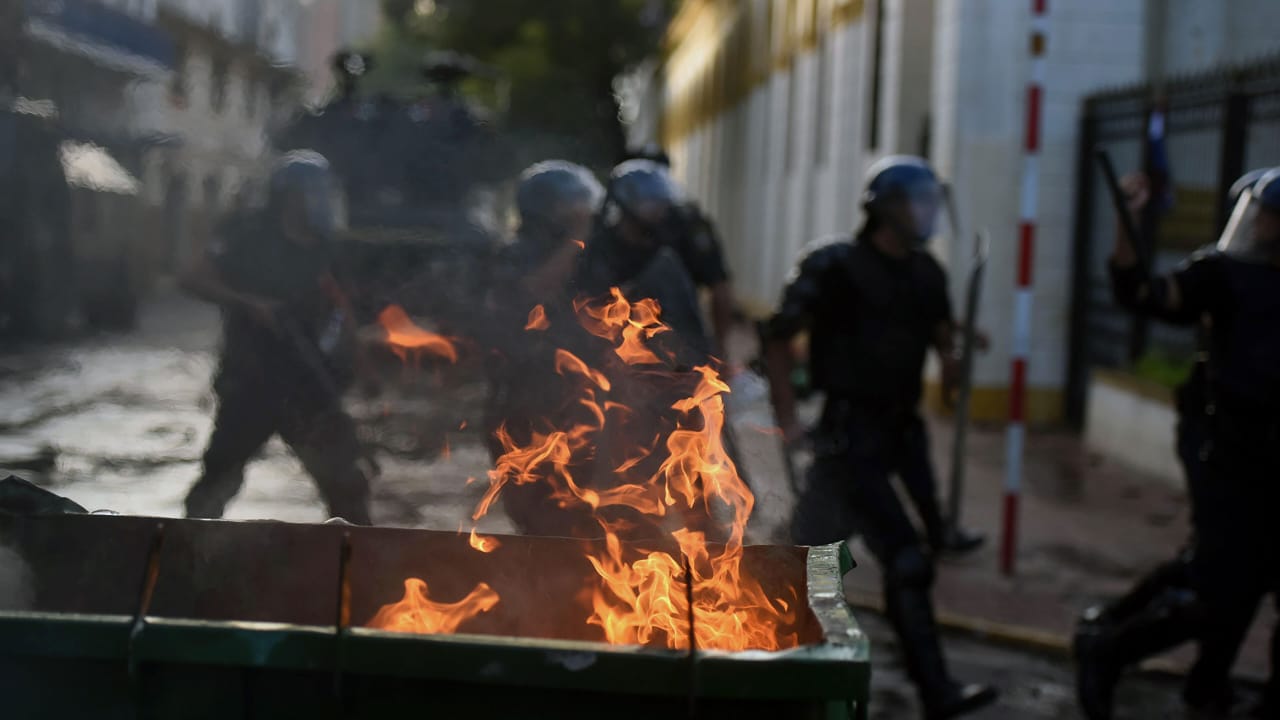
By Jorge Rolón Luna*
The model of policing that has emerged in Paraguay since the end of Stronismo, and the constitutional and legal reforms that followed, can be characterized as a “briefcase model“. I call this a way of organizing the actions of the police in which the main concern is the security of the state and the political class, and which is reproduced under an illegal collection scheme that benefits both the police institution itself and its political bosses.
The “briefcase model” is the product of an implicit pact between politics and the police: the latter ensures protection and defense of the status quo while at the same time generating and sharing substantial loot, all in exchange for the former granting it free rein for illicit activities and a certain amount of impunity.
Thus, permissiveness and impunity are the condiments of this model in which the unwritten mandate for the police institution is to obtain money in any way, with no limits whatsoever. As a retired (and convicted) police chief confessed: during Stronismo, “the best policeman was the one who beat the most; now, the best policeman is the one who collects the most”. According to the testimonies of agents, and the daily example of the police involved, the illicit acts range from drug trafficking, assaults, murders, kidnappings, harassment of tourists and simple citizens who, for example, have the unfortunate idea of parking their vehicles at night in a dark place.
Two elements are specific to the police system described: its political autonomy and self-government. They imply, the first “a marked doctrinal, organic and functional independence (…) and allowed it (the Police) to act frequently as if it were above and beyond the constitutional authority of the Government, increasingly protecting its self-defined achievements and interests (…) while in the latter, “the police institution had wide margins of independence to govern itself organically and functionally and, from there, to exercise the government of general public security“.
The “briefcase model” is not exclusive to Paraguay; it is possible to describe the functioning of the police in many Latin American countries. However, it is worth taking a closer look at how it developed in our country, because it has a particular genesis.
How did we get here? It was not overnight. During the period of Stronista domination, the Police (“of the Capital”, at that time, plus the police mayor’s offices throughout the country) lived under Stroessner’s political power and subordinated to the Armed Forces, to which it owed obedience. After the abrupt end of the Stronista period, this model survived for some time (it continued to be commanded by a military officer), until the 1992 constitution determined that the institution would be exclusively in charge of internal security and entirely subordinated to civilian power.
In practice, this meant that the police acquired a certain autonomy, which allowed them to control territory by reporting directly to politics and not to the armed forces. In this way, while military power was in progressive decline, another illegal and arbitrary power emerged, linked to criminality, which I call here “spurious police power“. We exchanged the mboka for the garrote.
The seriousness of the current situation is that this “briefcase model” – which has been in place for decades – has gotten out of control, with the multiplication and diversification of crimes committed by police officers.
Why does this happen? There are several causes, but it is clear that impunity and the lack of interest of the political class – lack of interest in security matters, one could say – lead to these nefarious police self-government.
One example illustrates the permissiveness and impunity: at the beginning of the pandemic, police officers in Alto Paraná were recorded stealing 70,000 dollars from Chinese citizens, a case that ended in nothing. Last November, in the same department, police officers were arrested and charged with kidnapping and extortion: one of them was Karina Caballero, the officer who was filmed stashing the bundles of dollars stolen from the Chinese in 2020 in her underwear. How is it that someone who the whole country witnessed stealing money on video was still in office?
This inexplicable and unacceptable act – one of many like it – involves not only the institutional command, which keeps corrupt and criminal agents in office, but the entire justice system, which acts as an accomplice to this model that deeply damages the very foundations of democracy and the republican system.
The current institutional deterioration is of such magnitude that police commander Gilberto Fleitas acknowledged just a few days ago that they face the serious problem that the institution itself is in charge of spoiling its young officers, who leave the police academies well trained “but break down along the way“.
The “briefcase model” is the product of an implicit pact between politics and the police: the latter ensures protection and defense of the status quo while at the same time generating and sharing substantial loot, all in exchange for the former granting it free rein for illicit activities and a certain amount of impunity.
In the Citizen Security Policy document launched by the Ministry of the Interior in 2010 -which I coordinated and drafted-, the issue of early spread of corrupt and criminal practices in the police institution was already noted. We call it the “Training Day syndrome”: rookie police officers absorb the corrupt and lawless practices of their superiors as soon as they leave the academy and enter police work.
Just as a declaration of “prison emergency” has been made in 2019, extended again a few days ago, due to the serious prison situation facing the country, it is perhaps also time to make a declaration of police emergency, aimed at a profound reform of the force.
* Researcher. Former director of the Observatory of Coexistence and Citizen Security of the Ministry of the Interior.
Cover image: AFP
